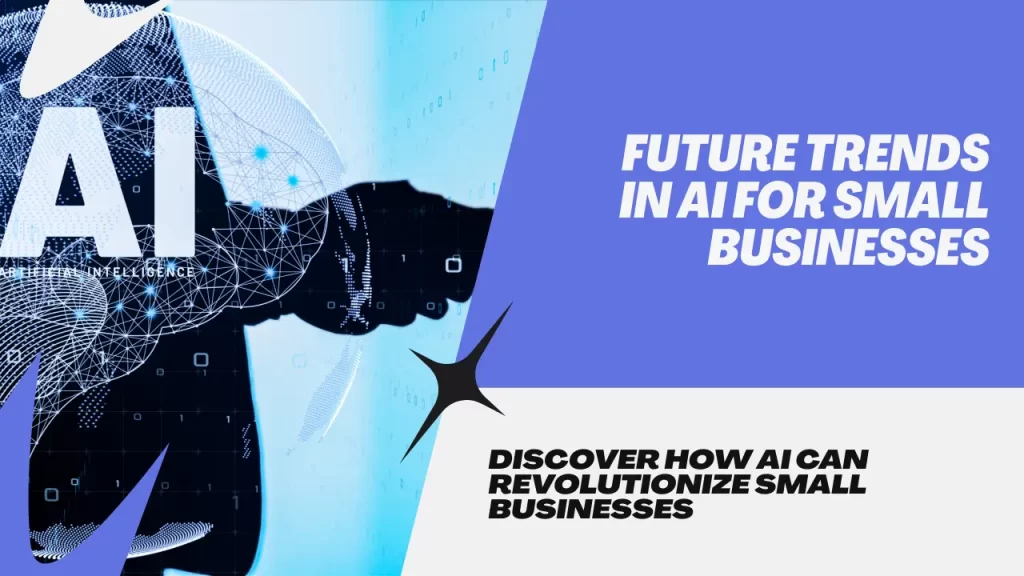Introduction: Why AI Matters for Small Businesses in 2025
Small businesses are the backbone of any economy. Yet, they often struggle with limited budgets, time, and manpower. That’s where AI tools for small business come in.
From automating emails to analyzing customer behavior, artificial intelligence (AI) is no longer a luxury—it’s a necessity. In this guide, you’ll discover the most powerful, affordable, and easy-to-use AI tools that small businesses can start using today.
Main Objective: This article helps small business owners understand, choose, and implement AI tools to increase efficiency, reduce costs, and scale faster.

What Are AI Tools for Small Business?
AI tools are software solutions that use machine learning, natural language processing (NLP), computer vision, and other technologies to simulate human intelligence and automate tasks.
These tools can:
- Analyze data
- Automate repetitive tasks
- Personalize customer experiences
- Optimize marketing and sales
Example: A bakery using an AI email marketing tool can automatically send personalized birthday discount coupons to past customers—without lifting a finger.
Benefits of AI for Small Businesses
Here are key advantages of integrating AI tools:
| Benefit | Explanation |
|---|---|
| Cost Savings | Reduce hiring costs by automating admin or customer support |
| Time Efficiency | Free up time spent on manual, repetitive tasks |
| Smarter Decision-Making | Use predictive analytics for inventory, sales, and marketing |
| Better Customer Experience | Offer 24/7 chatbots, personalized recommendations, and fast issue resolution |
| Scalability | Easily handle more leads, clients, or sales without hiring new employees |
10 Best AI Tools for Small Businesses in 2025
Below is a curated list of AI tools categorized by business function:
1. ChatGPT (Customer Support, Copywriting)
- Use Case: Answer customer queries, write emails, draft blog content
- Why It’s Great: Fast, accurate, and easy to use
- Cost: Free to $20/month
- Website: OpenAI ChatGPT
2. QuickBooks with AI (Accounting)
- Use Case: Smart bookkeeping, auto-categorizing transactions
- Why It’s Great: Saves time and reduces human errors
- Cost: Starting at $25/month
- Website: QuickBooks
3. Mailchimp AI (Email Marketing)
- Use Case: Predict the best time to send emails, personalize content
- Why It’s Great: User-friendly and data-driven
- Cost: Free to $299/month
- Website: Mailchimp
4. Jasper (Content Writing AI)
- Use Case: Generate marketing copy, blog posts, product descriptions
- Why It’s Great: Trained on high-converting content
- Cost: From $49/month
- Website: Jasper AI
5. Lumen5 (AI Video Maker)
- Use Case: Turn blog posts into videos
- Why It’s Great: Drag-and-drop interface; ideal for social media marketing
- Cost: Free trial, paid plans start at $59/month
- Website: Lumen5
6. Tidio (AI Chatbot)
- Use Case: Automate customer support via website chat
- Why It’s Great: Integrates easily with ecommerce platforms
- Cost: Free basic plan; $39/month for AI
- Website: Tidio
7. Pictory (AI Video Summarizer)
- Use Case: Create social content from webinars, Zoom calls
- Why It’s Great: Ideal for busy entrepreneurs
- Cost: From $19/month
- Website: Pictory
8. Surfer SEO (AI for SEO)
- Use Case: Optimize blog posts for Google ranking
- Why It’s Great: Shows keyword density, NLP terms, structure
- Cost: From $59/month
- Website: Surfer SEO
9. Shopify Magic (AI Ecommerce Assistant)
- Use Case: Auto-generate product descriptions, email replies
- Why It’s Great: Built directly into Shopify
- Cost: Included with Shopify plans
- Website: Shopify
10. Zoho CRM with AI (Sales/CRM)
- Use Case: Predict customer behavior, automate follow-ups
- Why It’s Great: Affordable CRM with AI intelligence
- Cost: Starts at $14/month
- Website: Zoho CRM
How to Choose the Right AI Tool for Your Small Business
Here’s a 5-step checklist:
- Define Your Pain Points: Do you need help with customer service, content, or analytics?
- Set a Budget: Many tools offer freemium models.
- Start Small: Test one tool before committing.
- Check Integration: Does it work with your existing tools like Shopify or Slack?
- Measure ROI: Track productivity, leads, and cost savings.
Use Cases of AI Tools in Real Small Businesses
Retail Store Example
- Problem: Manual email marketing with low engagement
- AI Tool Used: Mailchimp AI
- Result: 37% increase in open rate using AI send-time optimization
Freelance Graphic Designer
- Problem: Takes hours to write portfolio content
- AI Tool Used: Jasper AI
- Result: Saved 12+ hours/month and improved website SEO
Online Coaching Business
- Problem: Too many client inquiries at night
- AI Tool Used: Tidio chatbot
- Result: 24/7 response automation, freeing up work hours
Challenges of Using AI in Small Business (And How to Overcome Them)
| Challenge | Solution |
|---|---|
| Steep learning curve | Choose tools with tutorials and onboarding support |
| Cost concerns | Start with free plans or tools with monthly billing |
| Data privacy issues | Choose tools that are GDPR and CCPA-compliant |
| Over-reliance | Use AI to support—not replace—human creativity and decision-making |

Future Trends in AI for Small Businesses
- Voice-activated AI assistants for small teams
- Hyper-personalized marketing
- AI-driven virtual hiring and onboarding
- Affordable robotic process automation (RPA)
- AI co-pilots embedded in productivity apps (e.g., Notion, Canva)
FAQs: AI Tools for Small Business
Q1. What is the best AI tool for small business marketing?
Answer: Mailchimp (for email marketing) and Jasper AI (for copywriting) are top choices.
Q2. Are AI tools expensive for small businesses?
Answer: No. Many offer free trials, freemium models, or pricing tailored for SMBs.
Q3. Can AI tools replace employees?
Answer: Not entirely. AI automates tasks, but human oversight, creativity, and strategy are still essential.
Q4. Is it hard to learn AI tools?
Answer: Most modern tools have user-friendly dashboards, tutorials, and integrations to simplify adoption.
Q5. How can I measure the impact of AI tools?
Answer: Track time saved, cost reductions, lead conversions, and overall ROI using built-in analytics.
Final Thoughts
Integrating AI tools for small business is no longer just for tech giants. In 2025, smart adoption of these tools can boost efficiency, enhance customer service, and scale your operations—without breaking the bank.
Whether you’re a solo freelancer, ecommerce startup, or local service provider, there’s an AI tool ready to support your next growth phase.

